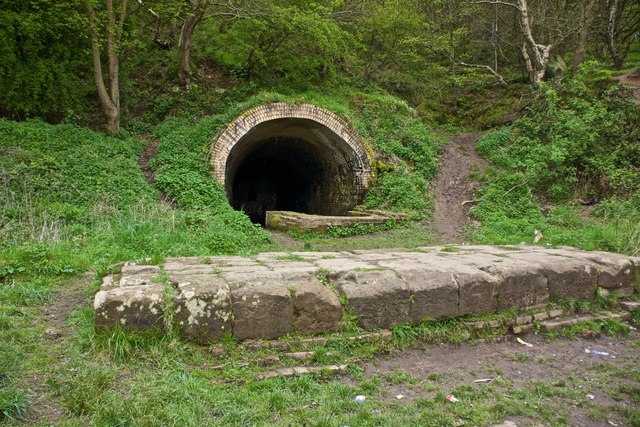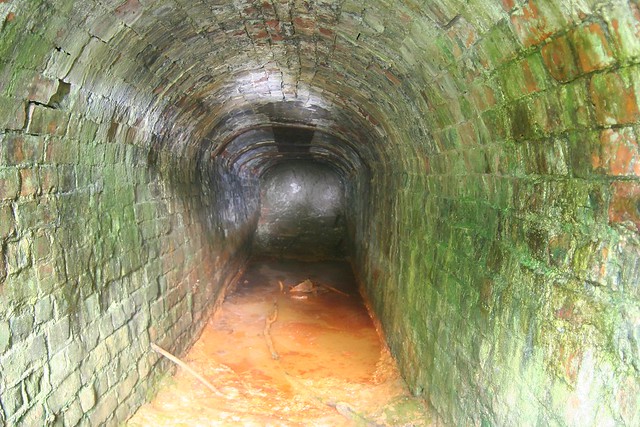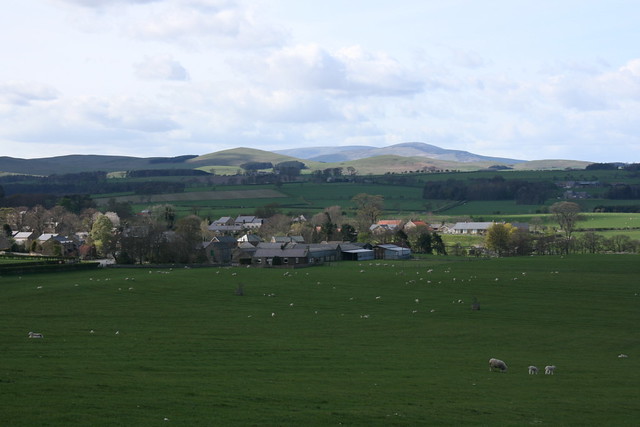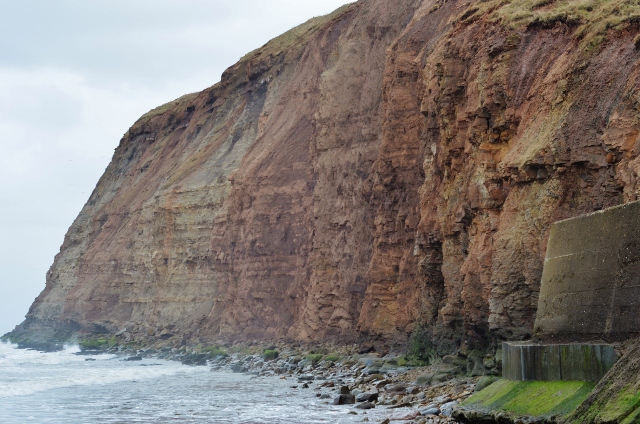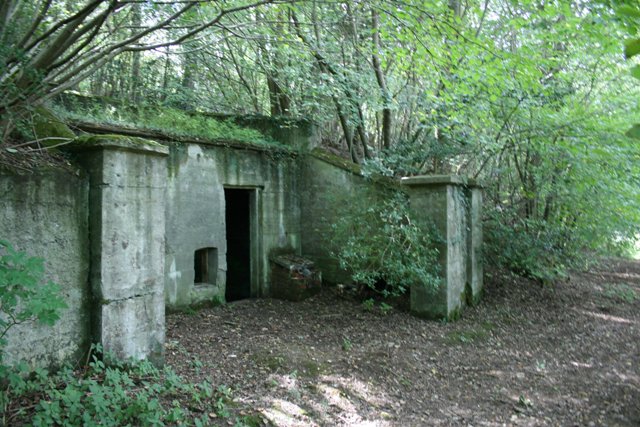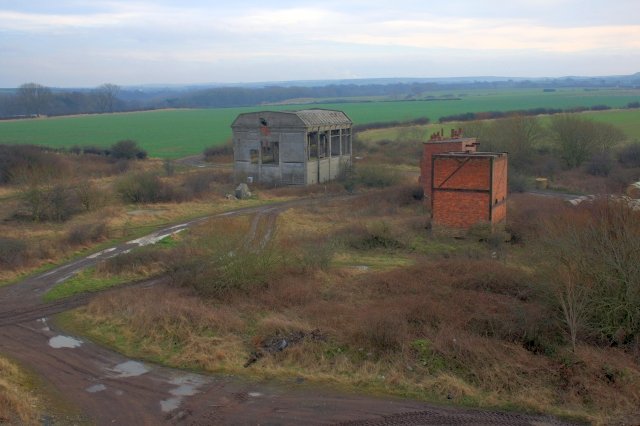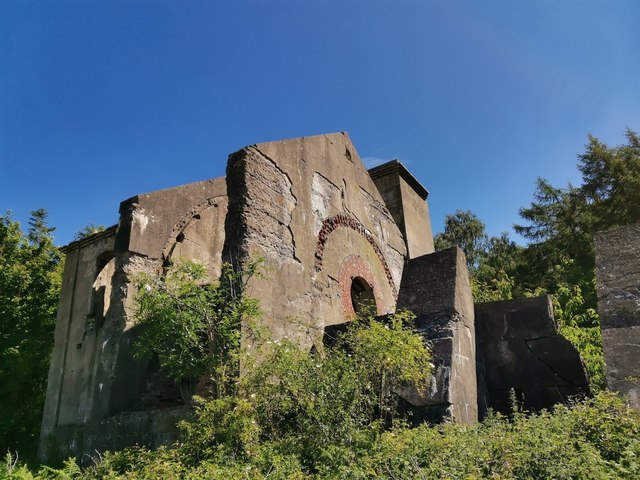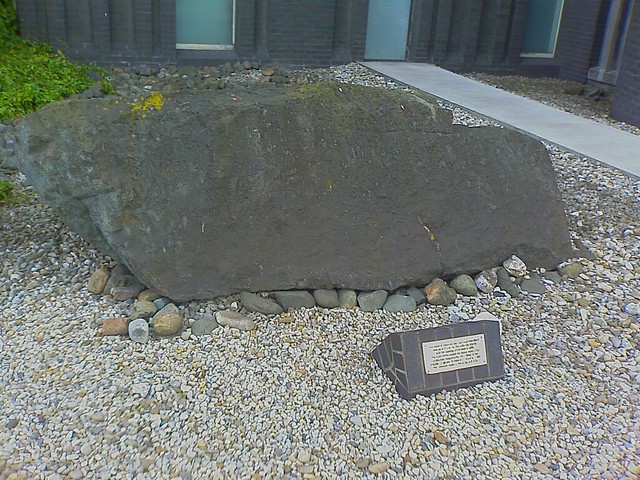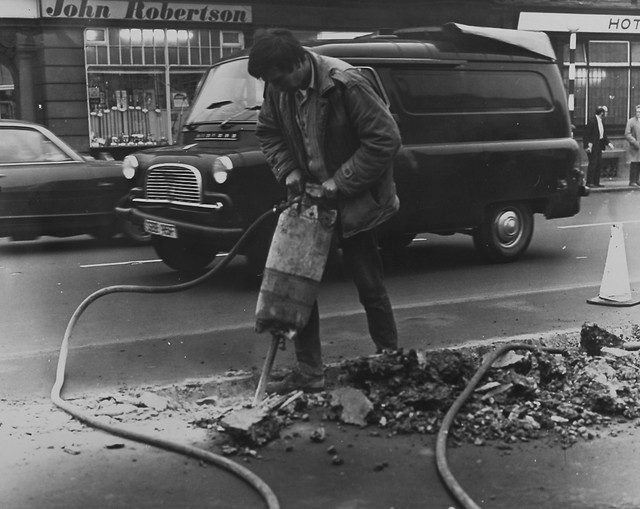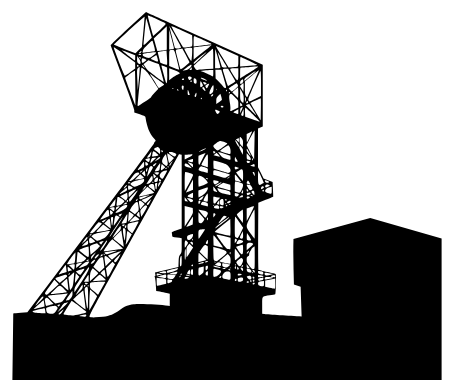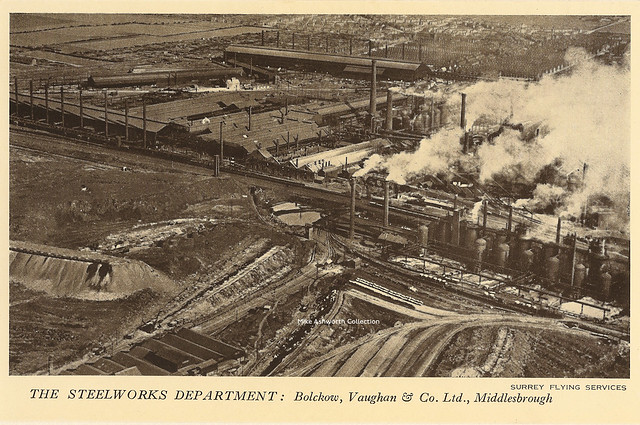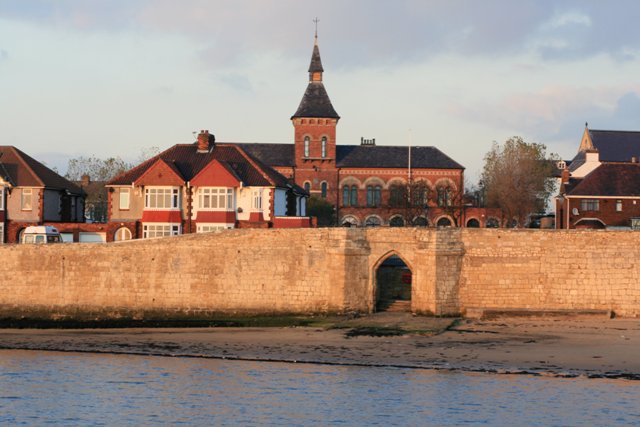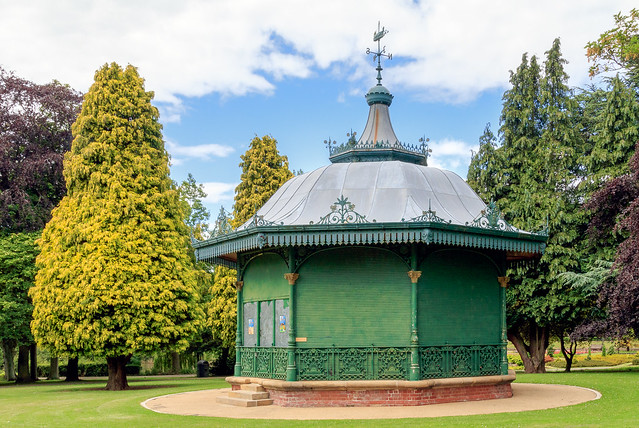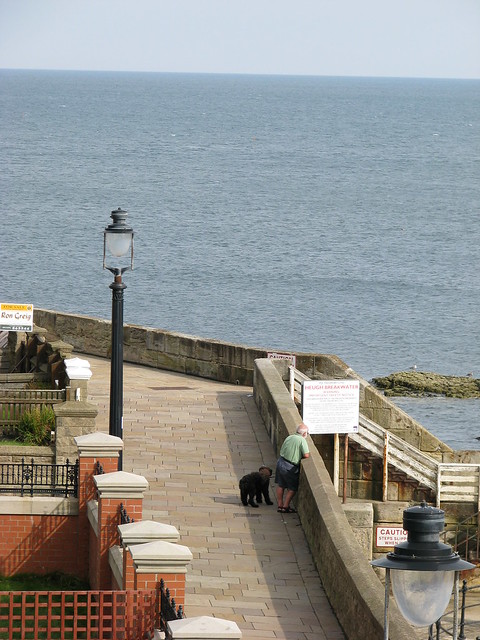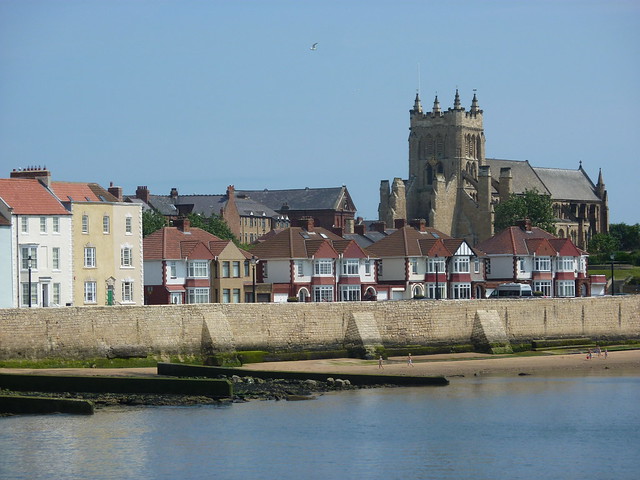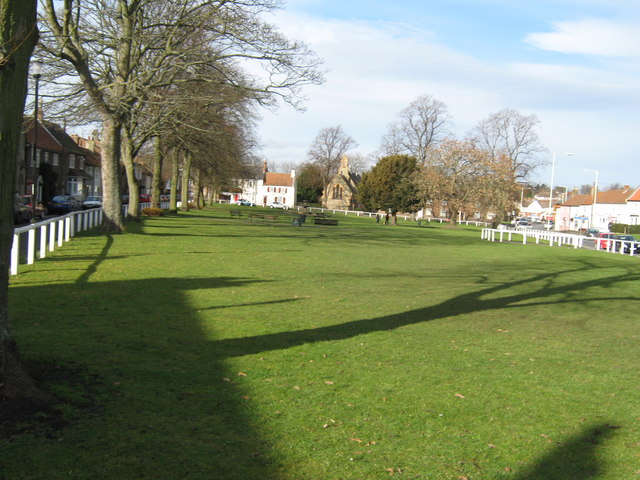Topics > Industry and Work > Mining > Ironstone Mining in Cleveland
Ironstone Mining in Cleveland
Ironstone is rock containing iron ore. There are rich seams of ironstone in the Cleveland Hills extending out to the coast; ironstone rocks were collected from beaches on a small scale but in the mid-19th Century mining of ironstone began. The first large scale ironstone mine in Cleveland was opened at Skinningrove on 7th August 1848, producing ironstone for shipment by sea to Bolckow and Vaughan’s Witton Park ironworks[1]. Following the discovery of ironstone in the Cleveland Hills, a mine in Eston was established in 1850. Over the next 20 years many other ironstone mines were established in Cleveland. It was like a 'gold-rush' - one new mining settlement was even named California. Thousands of people came to find work in Cleveland in the ironstone mines and associated iron works - including coal miners from Durham, Northumberland & Scotland, tin miners from Cornwall, farm labourers from Norfolk, and migrants from Ireland. Cleveland produced one third of the total UK iron output during Victorian & Edwardian times, leading to the rapid growth of Middlesbrough.

Co-Curate Page
Cleveland Ironstone Mining Museum
- Overview Map The museum was founded in 1983 by volunteers to preserve the remains of the ironstone mining industry, which had once formed the basis of Cleveland’s growth & prosperity …
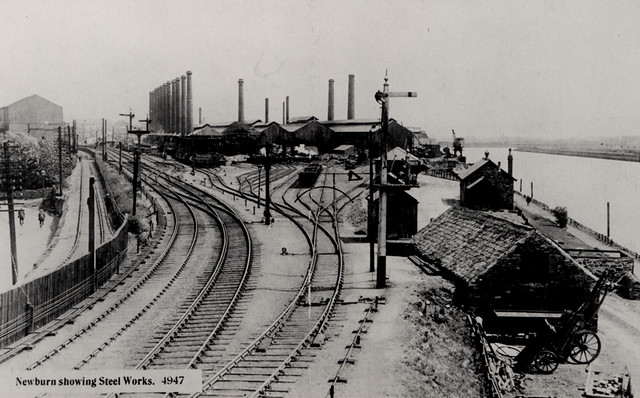
Co-Curate Page
Iron and Steel Making
- Iron and later steel working had a huge impact on the rapid industrialisation across many parts of the North East. For example: "..so late as 1801 [Middlesbrough] only had twenty-five …
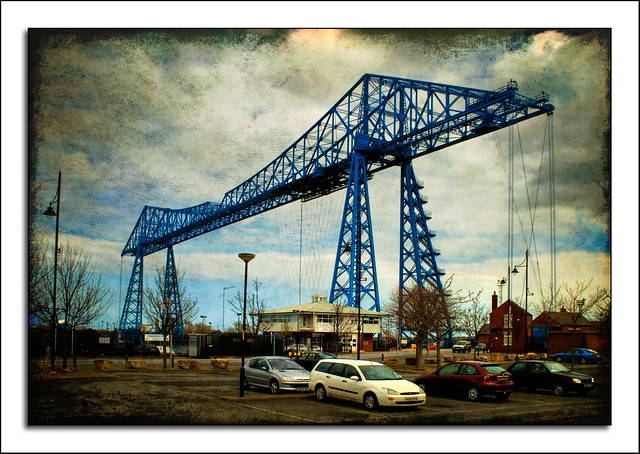
Co-Curate Page
Middlesbrough
- Overview Landmarks & Places to Visit History Timeline People "Middlesbrough is an almost unparalleled example of rapid growth...It dates from 1829, when its site was occupied by a solitary farmhouse, …
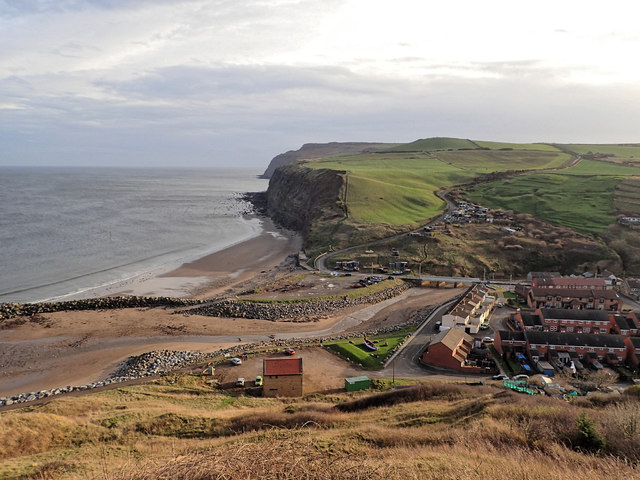
Co-Curate Page
Skinningrove
- Overview About Skinningrove Map Street View Skinningrove is a coastal village located two and a half miles South East of Saltburn-by-the-Sea, in North Yorkshire and within the unitary authority of Redcar …

from http://ironstonemuseum.co.uk/
Cleveland Ironstone Mining Museum
- "The Cleveland Ironstone Mining Museum was founded in 1983 by a group of volunteers acutely aware that the remains of the ironstone mining industry, which had once formed the basis …
Added by
Simon Cotterill
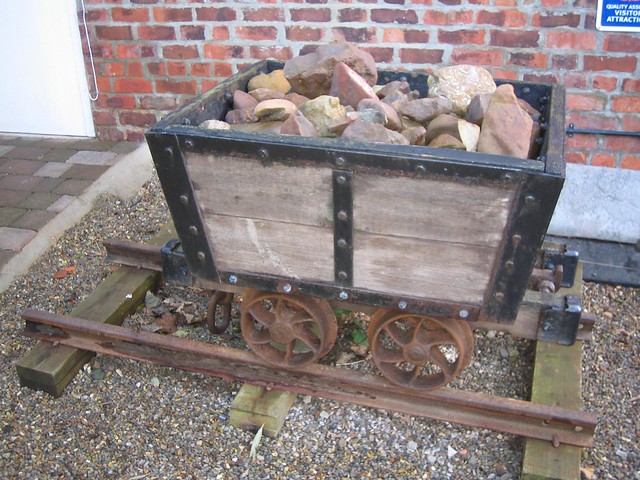
from Flickr (flickr)
Tom Leonard, Cleveland Ironstone Mining Museum, Skinningrove
Pinned by Simon Cotterill

from https://www.redcar-cleveland.…
Cleveland Ironstone Mining - PDF
- Illustrated PDF covering history, the 'Iron men', tools used, the Cleveland Mining Museum and other topics.
Added by
Simon Cotterill
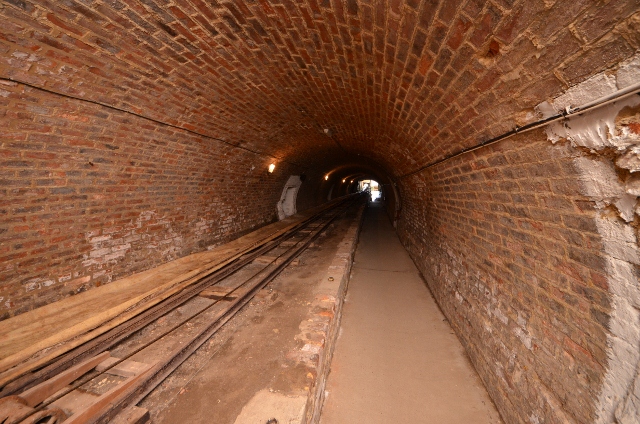
Co-Curate Page
Skinningrove Ironstone Mine (1848-1958)
- The ironstone mine at Skinningrove (also known as Loftus mine) was opened on 7th August 1848, producing ironstone for shipment by sea to Bolckow and Vaughan’s Witton Park ironworks[1]. The mine's …
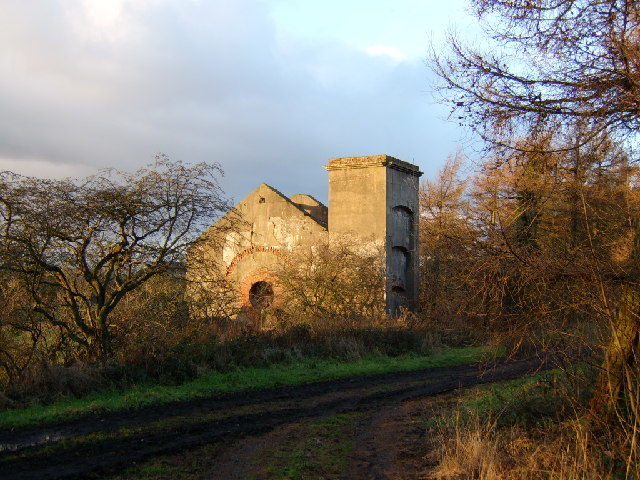
Co-Curate Page
Slapewath Ironstone Mine
- By 1902, Slapewath mine and the associated Spa Wood ironstone mine employed a combined total of 482 people (409 below ground and 73 on the surface).[1]
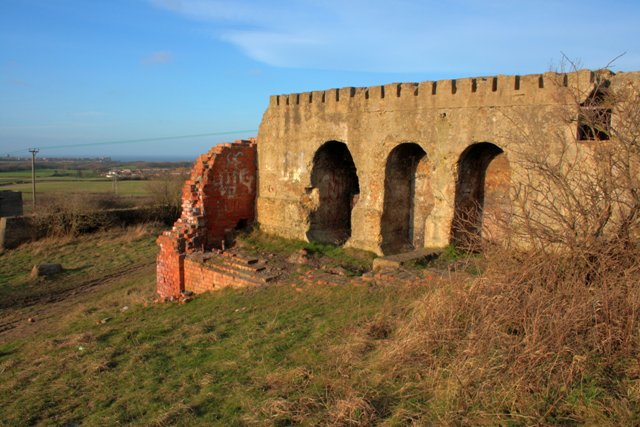
Co-Curate Page
Lumpsey Ironstone Mine
- Overview Map Aerial View Lumpsey Ironstone Mine was located about a quarter of a mile south of Brotton. Lumpsey Mine was established in c.1882, run by Bell Brothers Ltd. The …

Co-Curate Page
Carlin How Ironstone Mine
- Opened in c.1896 and came under the ownership of Dorman Long & Co ltd in 1923. By 1924 the mine employed 334 people (248 working under ground, 86 on the surface).[1] …

Co-Curate Page
North Skelton Ironstone Mine
- The mine was opened in the late 19th century. By 1921 the mine was employing 476 people (367 working below ground, 109 at the surface).[1] The mine was closed on the …

Co-Curate Page
Lingdale Ironstone Mine
- In 1930 the mine employed 540 people (425 working below ground, 115 on the surface).[1]
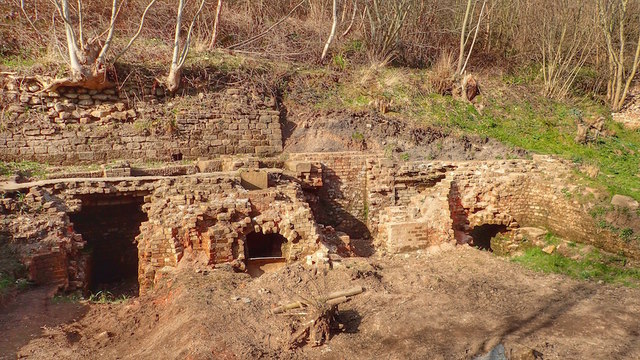
Co-Curate Page
Grinkle Ironstone Mine
- At its peak, in 1914 there were 479 people employed at Grinkle Mine (365 working below ground and 114 on the surface).[1] The mine closed in June 1934.
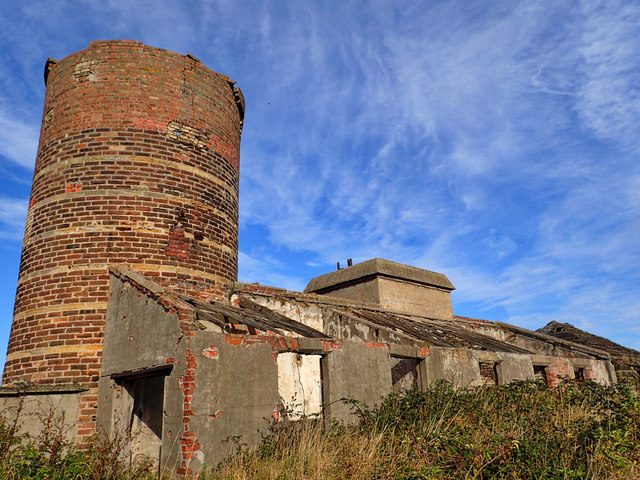
Co-Curate Page
Skelton Park Ironstone Mine (1870 - 1938)
- The sinking at Skelton Park ironstone mine started in 1870, by three brothers (Isaac Lowthian, Thomas and John Bell), to supply their ironworks at Port Clarence. The mineral rights and …
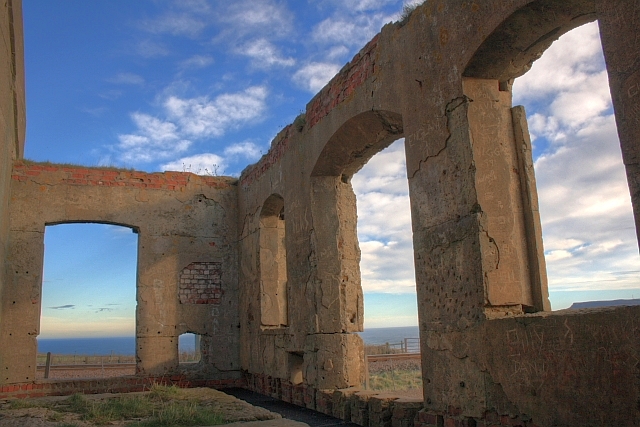
Co-Curate Page
Huntcliff Ironstone Mine
- Overview Map Street View Inside Huntcliffe Mine, near the cliffs about 1 mile north-east of Brotton, was opened by Bell Bros., Ltd.in 1871 (nearby Cliff Mines had been opened by …
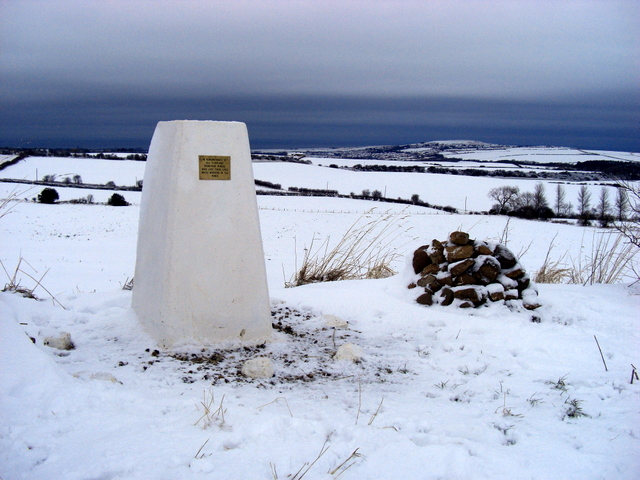
from Geograph (geograph)
Cleveland Ironstone Miners' Memorial (ex-trig point)
Pinned by Simon Cotterill


Co-Curate Page
Cleveland Ironstone Mining Museum
- Overview Map The museum was founded in 1983 by volunteers to preserve the remains of the ironstone mining industry, which had once formed the basis of Cleveland’s growth & prosperity …

Co-Curate Page
Iron and Steel Making
- Iron and later steel working had a huge impact on the rapid industrialisation across many parts of the North East. For example: "..so late as 1801 [Middlesbrough] only had twenty-five …

Co-Curate Page
Middlesbrough
- Overview Landmarks & Places to Visit History Timeline People "Middlesbrough is an almost unparalleled example of rapid growth...It dates from 1829, when its site was occupied by a solitary farmhouse, …

Co-Curate Page
Skinningrove
- Overview About Skinningrove Map Street View Skinningrove is a coastal village located two and a half miles South East of Saltburn-by-the-Sea, in North Yorkshire and within the unitary authority of Redcar …

from http://ironstonemuseum.co.uk/
Cleveland Ironstone Mining Museum
- "The Cleveland Ironstone Mining Museum was founded in 1983 by a group of volunteers acutely aware that the remains of the ironstone mining industry, which had once formed the basis …
Added by
Simon Cotterill

from Flickr (flickr)
Tom Leonard, Cleveland Ironstone Mining Museum, Skinningrove
Pinned by Simon Cotterill

from https://www.redcar-cleveland.…
Cleveland Ironstone Mining - PDF
- Illustrated PDF covering history, the 'Iron men', tools used, the Cleveland Mining Museum and other topics.
Added by
Simon Cotterill

Co-Curate Page
Skinningrove Ironstone Mine (1848-1958)
- The ironstone mine at Skinningrove (also known as Loftus mine) was opened on 7th August 1848, producing ironstone for shipment by sea to Bolckow and Vaughan’s Witton Park ironworks[1]. The mine's …

Co-Curate Page
Slapewath Ironstone Mine
- By 1902, Slapewath mine and the associated Spa Wood ironstone mine employed a combined total of 482 people (409 below ground and 73 on the surface).[1]

Co-Curate Page
Lumpsey Ironstone Mine
- Overview Map Aerial View Lumpsey Ironstone Mine was located about a quarter of a mile south of Brotton. Lumpsey Mine was established in c.1882, run by Bell Brothers Ltd. The …

Co-Curate Page
Carlin How Ironstone Mine
- Opened in c.1896 and came under the ownership of Dorman Long & Co ltd in 1923. By 1924 the mine employed 334 people (248 working under ground, 86 on the surface).[1] …

Co-Curate Page
North Skelton Ironstone Mine
- The mine was opened in the late 19th century. By 1921 the mine was employing 476 people (367 working below ground, 109 at the surface).[1] The mine was closed on the …

Co-Curate Page
Lingdale Ironstone Mine
- In 1930 the mine employed 540 people (425 working below ground, 115 on the surface).[1]

Co-Curate Page
Grinkle Ironstone Mine
- At its peak, in 1914 there were 479 people employed at Grinkle Mine (365 working below ground and 114 on the surface).[1] The mine closed in June 1934.

Co-Curate Page
Skelton Park Ironstone Mine (1870 - 1938)
- The sinking at Skelton Park ironstone mine started in 1870, by three brothers (Isaac Lowthian, Thomas and John Bell), to supply their ironworks at Port Clarence. The mineral rights and …

Co-Curate Page
Huntcliff Ironstone Mine
- Overview Map Street View Inside Huntcliffe Mine, near the cliffs about 1 mile north-east of Brotton, was opened by Bell Bros., Ltd.in 1871 (nearby Cliff Mines had been opened by …

from Geograph (geograph)
Cleveland Ironstone Miners' Memorial (ex-trig point)
Pinned by Simon Cotterill
